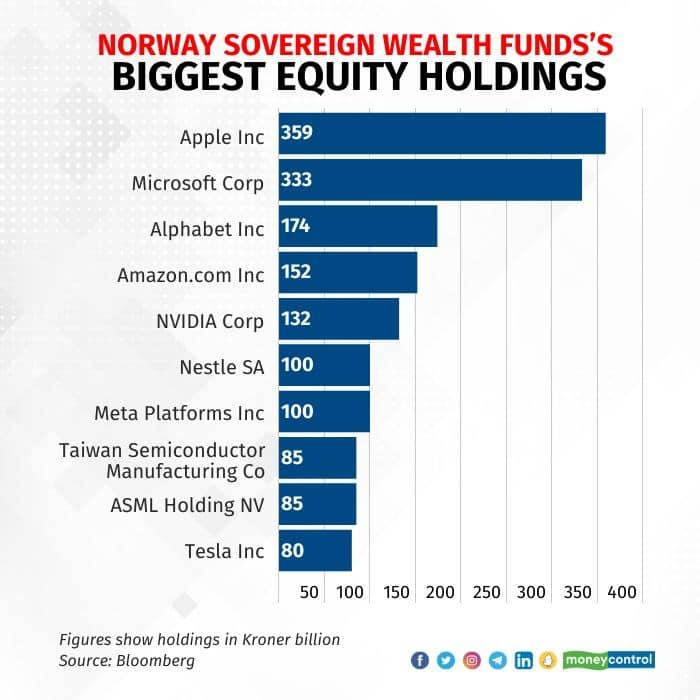Norway’s Sovereign Wealth Fund reinstates Investment in RWE Amid Energy Transition Challenges
The Government Pension Fund of Norway, recognized as one of the largest sovereign wealth funds globally, has made a pivotal change in its investment strategy by reinstating its stake in RWE, the prominent German energy corporation. This decision emerges against the backdrop of ongoing challenges related to energy transition as Europe navigates the complexities of reducing fossil fuel dependency while maintaining energy security. Analysts suggest that this shift may reflect a broader strategy aimed at balancing sustainability objectives with economic stability, particularly given the current volatility in energy prices across Europe.
RWE has faced criticism for its past reliance on coal and other non-renewable resources; however,it is actively working to pivot towards more sustainable alternatives such as wind and solar power. As Norway’s wealth fund seeks to align its investments with climate goals, this decision highlights the intricate dynamics involved in transitioning to cleaner energy sources. The fund’s renewed engagement with RWE indicates confidence in the company’s ability to adapt and positively influence the sustainable energy sector.
Key considerations include:
- Sustainable Investments: Focusing on companies advancing renewable energy initiatives.
- Economic Factors: Addressing challenges posed by fluctuating energy prices.
- Corporate Accountability: Assessing RWE’s dedication to lowering carbon emissions.
Evaluation of RWE’s Sustainability Initiatives and Their Impact on Investor Confidence
The recent environmental commitments made by RWE have substantially impacted its reputation within global investment circles.Following Norway’s sovereign wealth fund’s decision to reinstate investments in RWE, several key factors regarding the company’s sustainability efforts come into focus. The firm has launched initiatives aimed at reducing carbon emissions while transitioning towards renewable sources of energy—efforts that could not only improve its environmental standing but also attract future capital inflows. Notable strategies include:
- Investment Expansion into Renewables: A commitment to enhance their portfolio through wind and solar projects.
- Aspiring Carbon Neutrality Goals: Establishing a clear timeline for achieving carbon neutrality by 2040.
- Catalyzing Innovation through Partnerships: Collaborations with technology firms focused on developing low-emission solutions.
The growing emphasis on environmental issues is reshaping investment patterns; thus, RWE’s proactive stance could inspire similar companies to enhance their sustainability practices. an analysis of projected asset allocation reveals an increasing commitment toward green technologies illustrated below:
| Year | Investment in renewables (€ billion) | % Reduction in Carbon Emissions |
|---|---|---|
| 2023 | 1.5 | -5% |
Strategic Opportunities and Challenges for Investors Following Fund’s Decision
The recent choice made by Norway’s sovereign wealth fund regarding Germany’s RWE carries critically important implications for investors moving forward. This action reflects a changing sentiment towards a company deeply involved in both traditional and renewable forms of energy production during Germany’s ongoing policy shifts toward greener practices; it may indicate that institutional investors are reevaluating previously excluded firms due to environmental concerns. Potential opportunities arising from this development include:
- Renewed Market Optimism: This move might encourage other funds reconsider similar exclusions .
- Expansion Potential within Renewable Energy: As RW E transitions toward more sustainable operations , long-term growth prospects could be unlocked .
- Collaborative Ventures: Investors may discover partnership opportunities as RW E collaborates with clean technology enterprises .
This decision does not come without inherent risks , however . Investors must remain cautious about RW E ‘s adherence​to sustainability commitments as any failure​to meet established standards could result​in backlash or reputational harm . Additionally :
- Regulatory Uncertainties :  Ongoing changes ​in European environmental regulations may create operational uncertainties for RW E .Â
- Market Fluctuations : Â As geopolitical events impact global markets , RW E ‘s stock price might experience notable volatility .Â
- Public Perception :  Stakeholder sentiment can shift rapidly if RW E fails​to make expected progress on environmental initiatives .Â
| Factors | OpportunitiesRisks |
|---|---|




